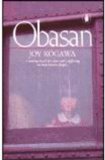 I found an old copy of Obasan as part of my commitment to read more Canadian and to work through the list of CBC’s list of 100 Books that Make You Proud to be Canadian. It is a semi-autobiographical novel based on the experiences of the author, Joy Kogawa when she and her family (along with 23,000 other Japanese Canadians) were displaced from Vancouver and interned during World War II. Obasan, initially published in 1981, was the first novel for Kogawa and has been adapted into a children’s book and an opera which toured elementary schools.
I found an old copy of Obasan as part of my commitment to read more Canadian and to work through the list of CBC’s list of 100 Books that Make You Proud to be Canadian. It is a semi-autobiographical novel based on the experiences of the author, Joy Kogawa when she and her family (along with 23,000 other Japanese Canadians) were displaced from Vancouver and interned during World War II. Obasan, initially published in 1981, was the first novel for Kogawa and has been adapted into a children’s book and an opera which toured elementary schools.
The story is told from the perspective of Naomi. She has returned to the home of her Obasan (aunt), where she had grown up during the war years, to grieve her Uncle who had passed away. As an adult, she is reading through a journal of letters and package of papers that her Aunt Emily had collected over the years when her family was dispersed. Her mother had travelled to Japan prior to the internment, her father tried to keep the family together but had his own health problems and spent time in hospital, her Aunt Emily had gone to Toronto while Naomi, her brother Stephen, Uncle and Obasan relocated first to Slocan, BC and later to a beet farm in Alberta. In a time of slow letters, the family is disconnected and it is only many years later that Naomi understands the plight of her family.
The family home (in real life now known as Kogawa House) was appropriated by the Canadian government along with many of the family belongings. After enduring curfews along the coastal area of Vancouver, the Japanese Canadian’s were forced from their homes and housed in stockyards before being transferred to live in substandard housing in the BC interior. Her family was split with her mother in Japan having traveled there prior to the internment, her father with health problems and in hospital, her Aunt Emily in Toronto while Naomi, her brother Stephen, Uncle and Obasan relocated first to Slocan, BC. As the pressure mounted to remove Japanese Canadians from BC, families were given choices of “returning” to Japan (despite many being born in Canada) or to moving to other provinces. Obasan kept her family fragments together, ensuring the children were cared as they lived in an abandoned chicken coop, labouring in the beet fields in Alberta.
Despite a hesitancy to revisit her childhood, Naomi begins to understand her past through a journal and past correspondence that her aunt has shared with her. She learns the unspoken truths about the loss of her parents as she grieves her Uncle. Despite the hardships experienced, the family was resilient and strong facing their challenges with a stoic resolve.
It is easy to see why the author has been awarded the Order of Canada. She has described her experience in a way that helps readers understand the terrible treatment of Japanese Canadians during the time of Pearl Harbour. It is important for Canadians to understand the “wartime wrongs” which Prime Minister Mulroney acknowledged 43 years later providing compensation packages of only $21,000 (CBC’s Canada: A People’s History).
This novel should be part of Canadian secondary school curriculum enabling students to learn history through fiction. Books such as Obasan, Indian Horse (Richard Wagamese), Three Day Road (Joseph Boyden) and Dance of the Banished (local author Marsha Forchuk Skrypuch) tell important Canadian stories that should be understood to provide perspective and ensure that these events never happen again.

Yes! We didn’t learn any of that stuff in school!
LikeLiked by 1 person
I sure wish that this was part of the curriculum now. my two oldest did not learn this in school either
LikeLiked by 1 person
Pingback: July: A Month of Reading Canadian | A Year of Books
Pingback: 76. Homegoing (Yaa Gyasi) | A Year of Books
Pingback: 82. A Number of Things (Jane Urquhart) | A Year of Books
Pingback: Celebrate Canada with 150 Books! | A Year of Books
Pingback: 4. Forgiveness: A Gift from my Grandparents (Mark Sakamoto) | A Year of Books